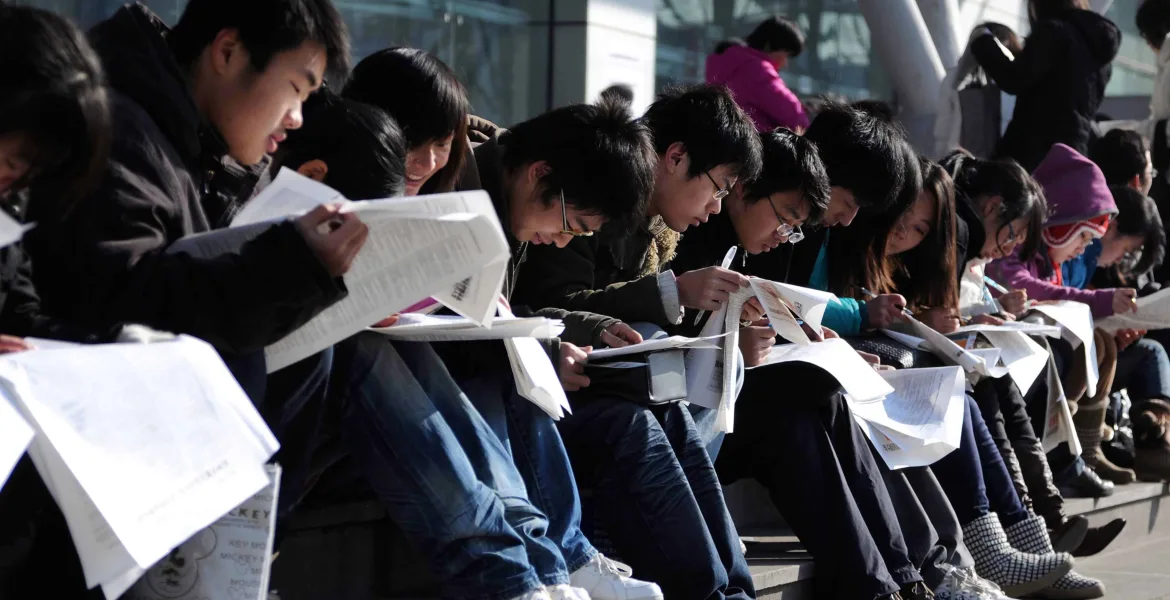The rise in open defiance against military service among Chinese youth makes the Communist regime nervous. Chinese social media platforms are buzzing with open discussions about the challenges young people face with the rise of mental health issues and how it affects their readiness for mandatory military service. Recently, there has been a noteworthy trend among the youth in China, especially Gen Z individuals, who resist fulfilling their military service obligations.
One prominent case that sparked discussions among Chinese netizens is that of Liu Weiye, a young man born in October 2002, whom the office of Hebei Wen'an County conscripted. Liu Weiye was drafted into the army in March of the current year and assigned to a specific unit of the Armed Police Force. However, since his induction, Liu Weiye has consistently avoided training, citing chest pains. Despite undergoing thorough examinations at the army system hospital, all medical indicators appeared normal.
Nevertheless, he persisted in asserting that his inability to fulfil his duties was due to psychological depression and suicidal thoughts. The situation escalated when the office responsible for conscription issued a circular publicly stating Liu Weiye's refusal to serve, citing mental health concerns, and imposed a five-point penalty as punishment. Despite various efforts by the army and his parents to convince him otherwise, Liu Weiye remained steadfast in withdrawing from military service.
Ultimately, on April 25, a unit of the Armed Police Force decided to expel Liu Weiye from the military, unable to resolve his predicament despite repeated attempts at providing support and encouragement. This case has raised significant attention and sparked discussions on the challenges young people face in China, especially concerning mental health issues and their impact on military service obligations.
Based on the report, Liu Weiye found himself in violation of multiple applicable laws and regulations. Consequently, he faced a fine of 62,550 yuan, was barred from potential future employment as a civil servant, and had the phrase "refusing to perform military service" permanently recorded in his household registration system's "Military Service Status" column.
This incident evoked a robust response from the public, with numerous netizens expressing empathy and support for Liu Weiye's actions, attributing his behaviour to the severity of mental health issues. Similar cases of refusal to perform military service are observed throughout the
country. This growing trend in China is further fuelled by the country's increased focus on possibly unifying Taiwan by force.
This situation has instilled a profound fear among Chinese youth, leading many to perceive the risks associated with military service as too substantial, potentially disrupting their lives significantly.
In April of this year, an anti-war message circulated widely on the internet, expressing sentiments such as, "If there is a war, I will not go, and I will not let my children go. I belong to the marginalised segment of society, often forgotten in times of peace but remembered only in times of trouble. The government doesn't treat us equally regarding welfare and state benefits. Regardless of what others choose to do, I firmly refuse to go to war, and I won't allow my children to go either."
This post struck a chord with Chinese netizens, leading to numerous shares and likes, as individuals felt the message resonated deeply with their feelings and experiences. The pressures on Chinese youth are immense – academic stress, rising unemployment, social expectations, and now military service obligations.
No wonder mental health issues are becoming more prevalent. Balancing mental well-being and serving in the military is a significant challenge. Hence, more and more Chinese youth openly defy military service.
Xi Lao is a freelance journalist based in Taiwan.

